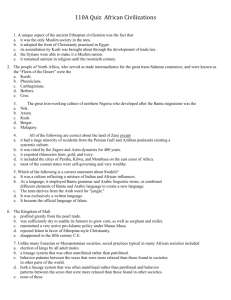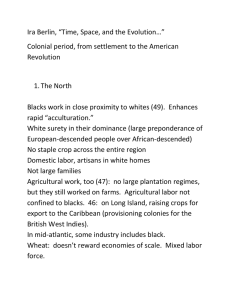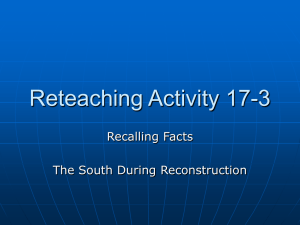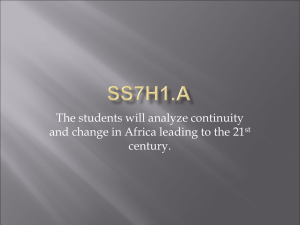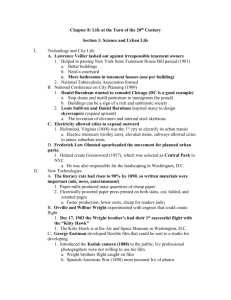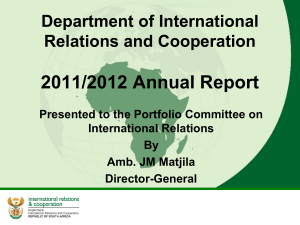Laws of South Africa
advertisement
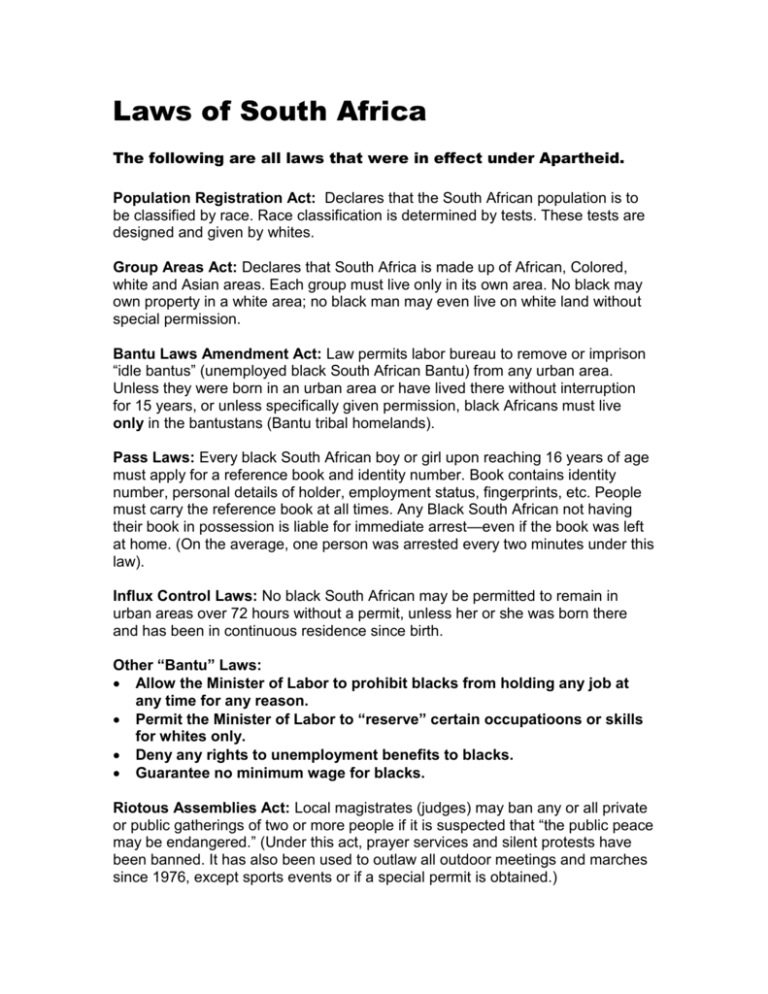
Laws of South Africa The following are all laws that were in effect under Apartheid. Population Registration Act: Declares that the South African population is to be classified by race. Race classification is determined by tests. These tests are designed and given by whites. Group Areas Act: Declares that South Africa is made up of African, Colored, white and Asian areas. Each group must live only in its own area. No black may own property in a white area; no black man may even live on white land without special permission. Bantu Laws Amendment Act: Law permits labor bureau to remove or imprison “idle bantus” (unemployed black South African Bantu) from any urban area. Unless they were born in an urban area or have lived there without interruption for 15 years, or unless specifically given permission, black Africans must live only in the bantustans (Bantu tribal homelands). Pass Laws: Every black South African boy or girl upon reaching 16 years of age must apply for a reference book and identity number. Book contains identity number, personal details of holder, employment status, fingerprints, etc. People must carry the reference book at all times. Any Black South African not having their book in possession is liable for immediate arrest—even if the book was left at home. (On the average, one person was arrested every two minutes under this law). Influx Control Laws: No black South African may be permitted to remain in urban areas over 72 hours without a permit, unless her or she was born there and has been in continuous residence since birth. Other “Bantu” Laws: Allow the Minister of Labor to prohibit blacks from holding any job at any time for any reason. Permit the Minister of Labor to “reserve” certain occupatioons or skills for whites only. Deny any rights to unemployment benefits to blacks. Guarantee no minimum wage for blacks. Riotous Assemblies Act: Local magistrates (judges) may ban any or all private or public gatherings of two or more people if it is suspected that “the public peace may be endangered.” (Under this act, prayer services and silent protests have been banned. It has also been used to outlaw all outdoor meetings and marches since 1976, except sports events or if a special permit is obtained.) Unlawful Organization Act: Bans the two black resistance movements in South Africa, the African National Congress and the Pan African Congress. The law gives the government the right to ban any organization—no formal notice need be given nor any hearing held. Once an organization is banned, all of its property must be turned over to the government. Departure From the Union Regulation Act: Minister of the Interior may withdraw or refuse to issue a passport at any time for any reason. Internal Security Act incorporating the former Suppression of Communism Act and Terrorism Act: Declares the Communist Party of South Africa illegal and allows the government to outlaw any organization found to be furthering the aims of “communism”. “Communism” is defined as Marxian socialism or other ideas which aim at changing the Apartheid system of government in South Africa. Penalty: Ten years in prison. The Minister of Justice may “ban” any person he feels is furthering communism. No trials or hearing is necessary, noir must any reason be given. “Banning” restricts the individual to a certain area, requires regular reporting top the police, prohibits persons from attending any gatherings, visiting any school or factory, being quoted in publications, belonging to any political party, etc. Internal Security Act also outlaws any act of sabotage against private property or the government as well as any act, writing or speech which “embarrasses the administration of the affairs of state” or might cause substantial financial loss to any person or to the government. (For example, it would have been a crime for a South African to urge U.S. corporations not to invest in South Africa). People charged under this law are guilty until proven innocent. Maximum penalty: death. Minimum penalty: five years in prison. This act also authorizes arrest and incarceration without trial. It sets no time limits on detention. An individual may be “detained” for life without trial. No judge may stop anyone from being detained. The government is under no legal obligation to inform a detainee’s family about the detention. Sabotage Act: Outlaws these, among other things: engaging in acts promoting “disorder”, “furthering racial hostilities”, or embarrassing the administration of the affairs of state. People charged are guilty until proven innocent. Maximum penalty: death. Defense Act: Make sit a crime to publish any negative statement or comment about a government official which would “embarrass the government in its foreign relations or alarm or depress members of the public”. Prisons Act: Forbids publication of any information about prisons without being able to verify information. (Because it is impossible legally to check any information about prisons, this law serves to prohibit any public discussion of prisons). The Immorality Act: Prohibits sexual relations between whites and any other races.
